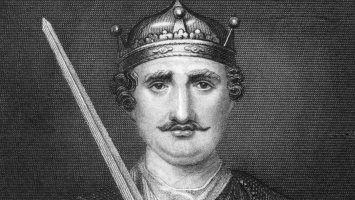Top 10 Interesting Facts about Commodus
Some Roman emperors strove to bring peace and prosperity to the Empire, while others wanted to destroy it. Due to his inhumane nature, Emperor Commodus was one ... read more...of the worst Roman emperors and was on the side of those who wanted to topple the Empire. Like, Emperors Caligula, Nero, Domitian, and Elagabalus, he too was known amongst the Romans for the brutality he had spread all around. Commodus was filled with horrifying and enigmatic things. Here is the list of the 10 most cruel yet interesting facts about Commodus.
-
In the ancient city of Lanuvium, close to Rome, Commodus was born under the name "Lucius Aelius Aurelius Commodus." Marcus Aurelius and Faustina the Younger were his parents. His mother, Faustina Marcus was not only his wife but also his father's cousin and the youngest daughter of Antoninus, the intricate webs of the imperial dynasty were common. Thus, in the second century, Commodus was born at one of the main centers of imperial authority. Commodus was the youngest of twins when he was born.
Titus Aurelius Fulvus Antoninus, the elder twin brother of Commodus, passed away at the age of 4 in 165 A.D. Marcus Annius Verus, a younger brother, was also a family member. Annius Verus, Commodus' younger brother, and he were both appointed to the position of Caesar on October 12, 166, but Verus passed away three years later, in 169 A.D. Commodus became Marcus' sole son and the imperial household's successor after Titus, his older brother, tragically passed away in 165. Commodus was the only kid that Marcus had ever desired to have as his heir.
Commodus, like his father before him, benefited from an excellent Roman aristocratic education that was geared toward producing a kid who might lead the empire. He would have met Galen, the court physician and one of the most important physicians of antiquity, at the imperial court in Rome. Galen would handle Commodus' medical needs and administer numerous common illnesses. In January 175 AD, Commodus enrolled in the College of Pontiffs.
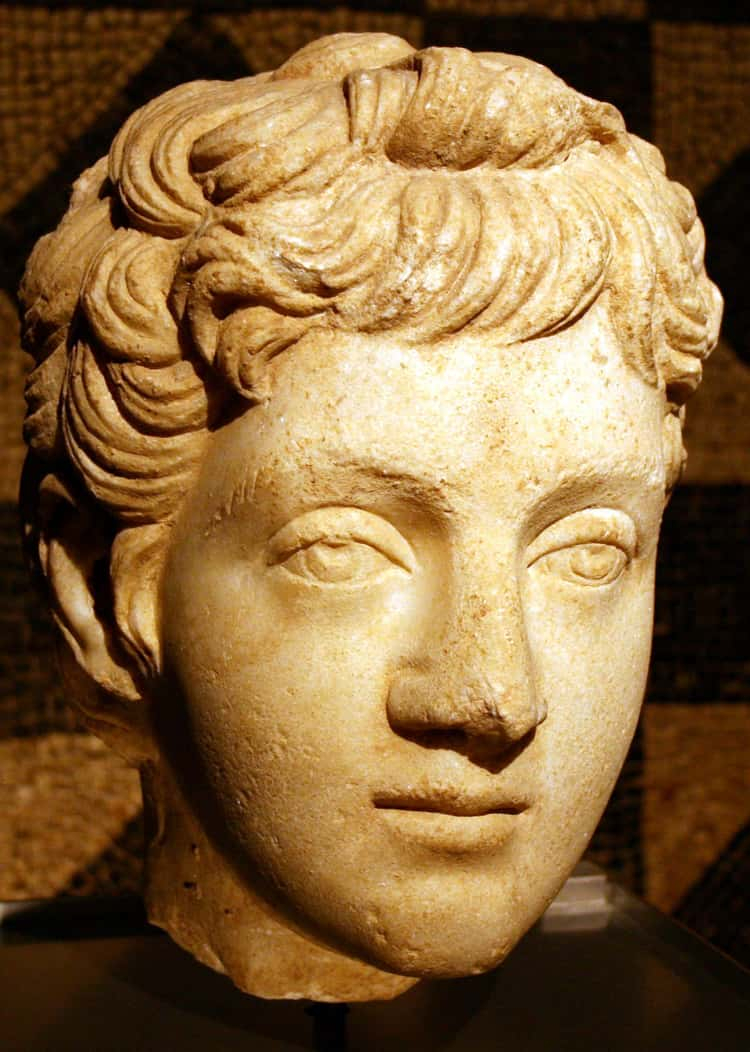
en.wikipedia.org 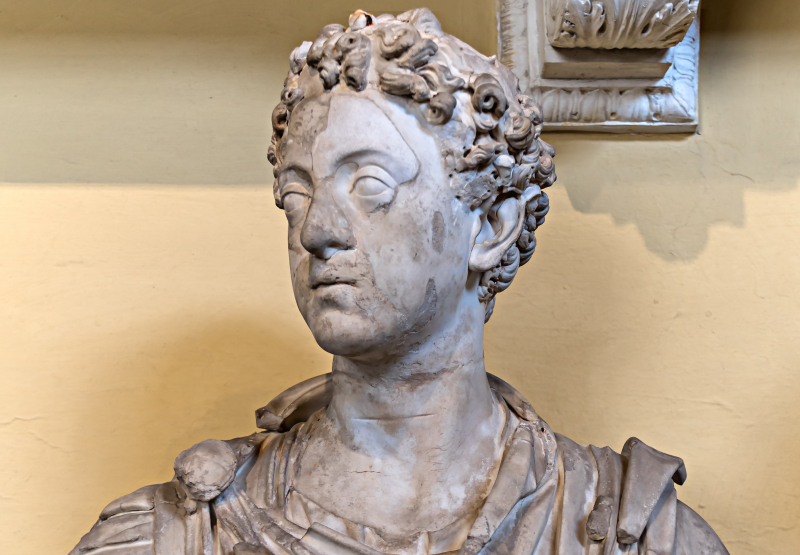
en.wikipedia.org -
One of the "excellent" emperors, along with Nerva, Trajan, Hadrian, and Antonius Pius, was Marcus Aurelius. The only emperor to have a legal biological son was him. Because Commodus was the only son "born in the purple," that is, during his father's rule, Marcus had a strong desire to make him his heir. Marcus Aurelius was anxious to make sure that the path of imperial succession was clear after suffering the loss of one son. To protect the citizens of Rome and the soldiers in the provinces, he implemented a variety of measures.
When Commodus was just 11 years old, he is believed to have accompanied his father on a campaign at Carnuntum in AD 172. (in the east of modern Austria). During the Marcomannic War, this served as the emperor's headquarters while he fought several Germanic tribes who had made inroads. Commodus received the title Germanicus alongside his father in October of the same year in the army’s presence. He had already begun to establish himself as the army's commander and as a triumphant Roman general.
On November 27, 176, Commodus received the title "Imperator" from his father, Marcus. Commodus obtained tribunal authority in December of the same year, making him the console for the first time on 1 January 277. The youngest console in Roman history up to that point, he was just 15 years old. Commodus was given the title "Augustus" in the middle of the year 177 AD, giving him parity with his father Marcus. Following that, Commodus wed Bruttia Crispina. At the age of 18, Commodus succeeded Marcus as the only emperor of Rome after the latter's passing on March 17, 180.
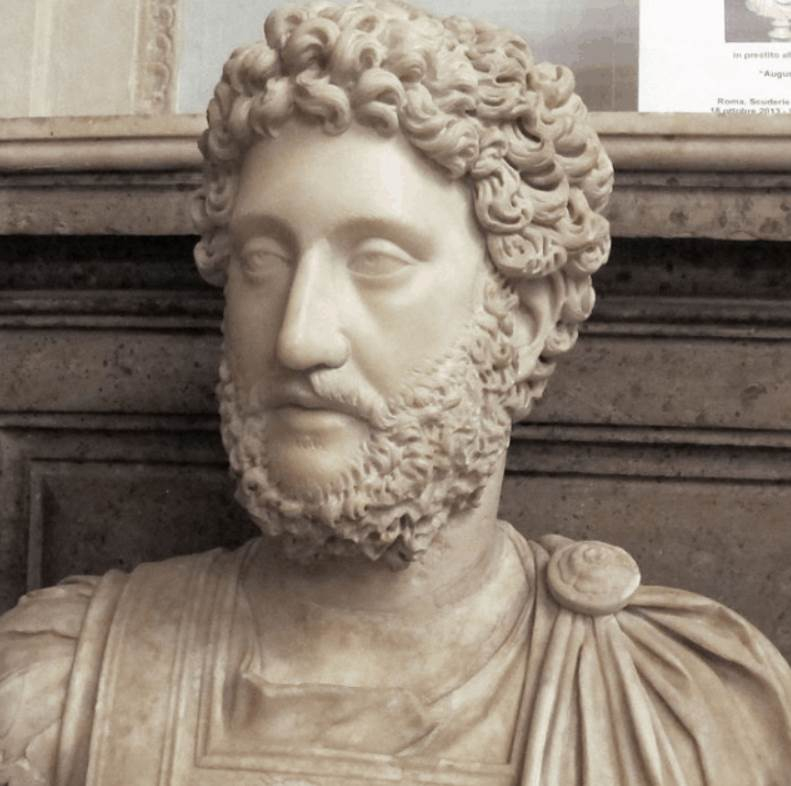
en.wikipedia.org 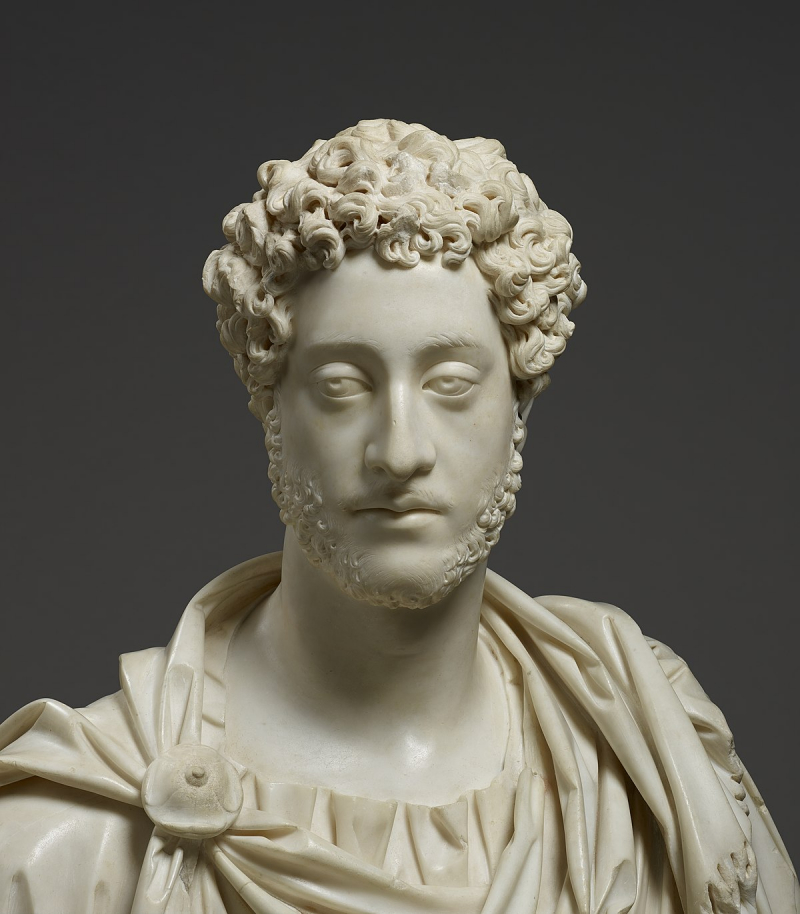
en.wikipedia.org -
Emperor Marcus Aurelius passed away in Vindobona (modern-day Vienna) in March 180 AD while in charge of ongoing Roman operations on the Danube border. The historian Cassius Dio records that Marcus was dissatisfied with his son's education, but at least his efforts to secure a seamless succession were accomplished. It cannot be denied that his father presided over a reign marred by conflict, even though he is revered as the model of imperial control. Despite all of his other flaws, he lacked a drive for conflict. However, his motivations for pursuing peace seem to have been less than honorable. The emperor swiftly lost interest in carrying on his father's war. Commodus was equally unconcerned with the responsibilities of being an emperor. He just delegated control of the majority of his laws to someone else. When he became emperor, he delegated all of his responsibilities to a man named Perennis and then took command of the part that involved living like a king.
Cleander completed all of Commodus's tasks, although he received little compensation. When there was food scarcity in the nation, all of Rome revolted against him. To protect his head, the grain manager, a man by the name of Papirius Dionysius, placed everything on Cleander. Soon after, a vengeful mob set out to assassinate Cleander. Commodus allowed Cleander to temporarily hide in his fortress after he ran to him for assistance. However, Commodus listened to his favorite mistress in his harem, a lady by the name of Marcia, when she advised him to hand Cleander up to the mob.
He killed his pal after years of service. That's horrible, but he didn't stop there, he also killed Cleander. Cleander's head was placed on a spear by Commodus and given to the enraged throng. Then, in addition to his wife and kids, he ordered the execution of Cleander's acquaintances. He then ordered the youngsters' dismembered remains to be taken through Rome's streets, dumped into sewers, and allowed to fester to placate the audience.
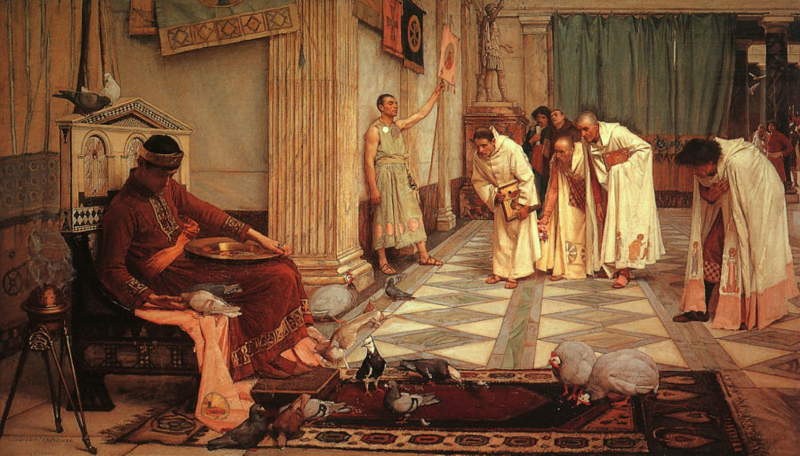
brewminate.com 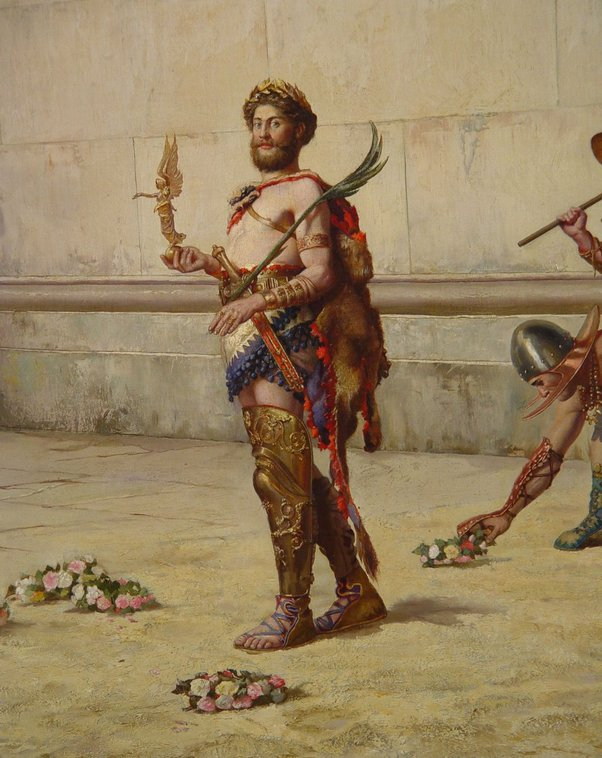
brewminate.com -
Commodus displayed progressively erratic conduct as he descended into megalomania as a result of the sequence of schemes and conspiracies against him as well as the influences of dubious courtiers. The emperor's conduct fell well short of what his father had expected of him. The gladiatorial arena was Commodus' favorite place to be. Commodus was a great physical specimen who enjoyed physical activities like horse and chariot racing and sparring. This wasn't anything to make fun of or criticize in private. When this became public, it was when it was deemed wrong. Famously, Commodus was the gladiator emperor who regularly fought in the arena, much to the dismay of the assembled senate spectators. The emperor was renowned for his hunts for wild animals, and on one of these expeditions, he famously saved a condemned criminal from a leopard's fangs.
Besides, Commodus' infatuation with Roman gladiators was among the factors contributing to his dehumanizing and ruthless growth. Commodus planned to host the massive bloody match in a gladiatorial stadium. He would enter the stadium while completely nude in front of everyone watching. He would insult those who were physically crippled in front of the cheering Roman populace because of a serious personality condition.
In addition, he enjoyed amusing himself by watching gladiators murder one another. Any gladiator who ceased murdering his opponent would have the combat interrupted, Commodus would stop the fight and force him to kill the other. Until one of the gladiators was declared dead in the arena, the conflict would not end. He invited the gladiators to his palace so they may prepare for the battle. Commodus, though, was unbeatable. Even those who were stronger or more physically fit than Commodus were forced to submit or be defeated by him. The invitation almost guaranteed death because no one would dare challenge him and, if he prevailed, he would show no compassion. The fortunate escaped his house with missing limbs and noses, while the unfortunate perished there.
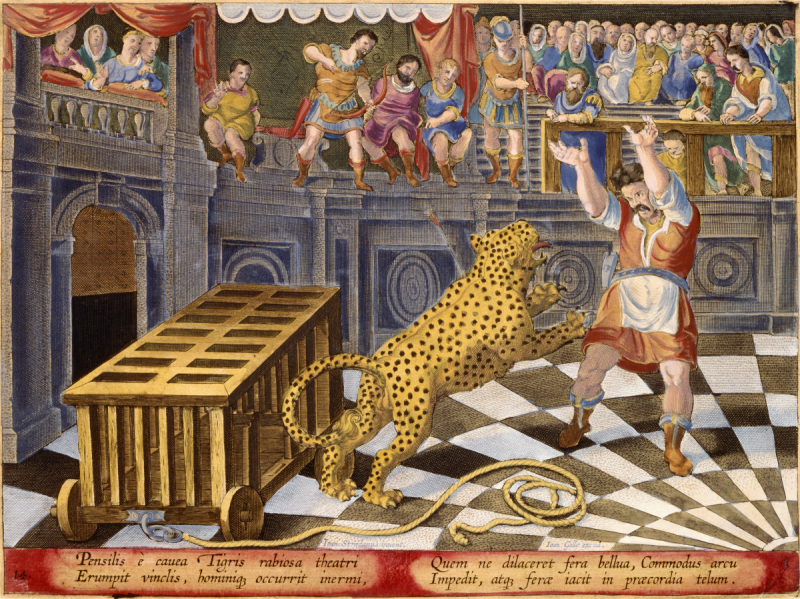
www.worldhistory.org 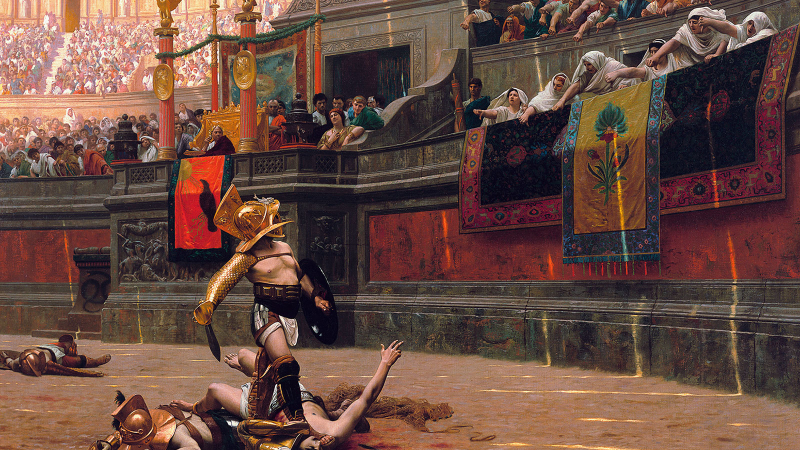
www.worldhistory.org -
For Commodus, progress and peace were nothing. He only desired to lead a lavish life within the castle. Commodus would squander the resources of the Empire on his personal preferences. Even if murder isn't a common pastime, it has harmed the economy. Commodus billed the state a million sesterces each time he appeared in the gladiatorial arena. As a result, Commodus had to spend a lot of money on his pleasure, depleting the country's resources. His obsession with murder took lives, but it also contributed to the utter collapse of the Roman economy.
The Roman Empire's economic decline wasn't just a result of Commodus' amusement. He had caused a domino effect by devaluing the Roman money. Roman money devaluation was not a novel idea. Emperor Nero had done it before Commodus. However, under Commodus' rule, there was a significantly greater degree of monetary devaluation. Devaluing money was a far more direct procedure in Roman times than it is now. Commodus decreased the quantity of gold and silver in Roman coins, making them lighter and thus less valuable. Commodus depreciated Roman coinage more than any other emperor after him. The nation was devastated by it even throughout his lifetime. Commodus, according to one Roman who lived during his rule, turned Rome "from a realm of gold to one of iron and rust."
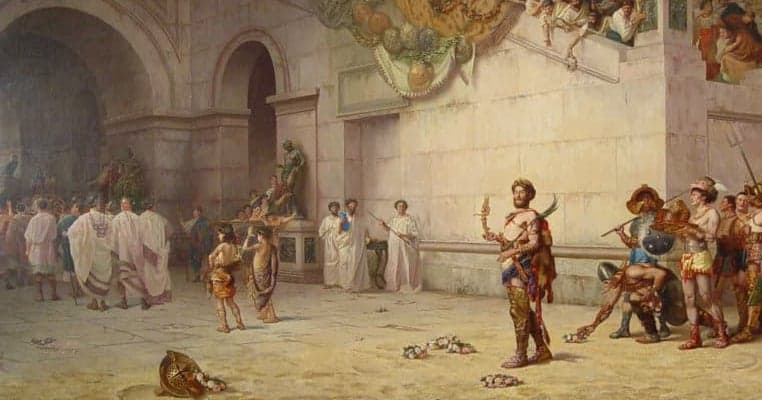
www.history.com 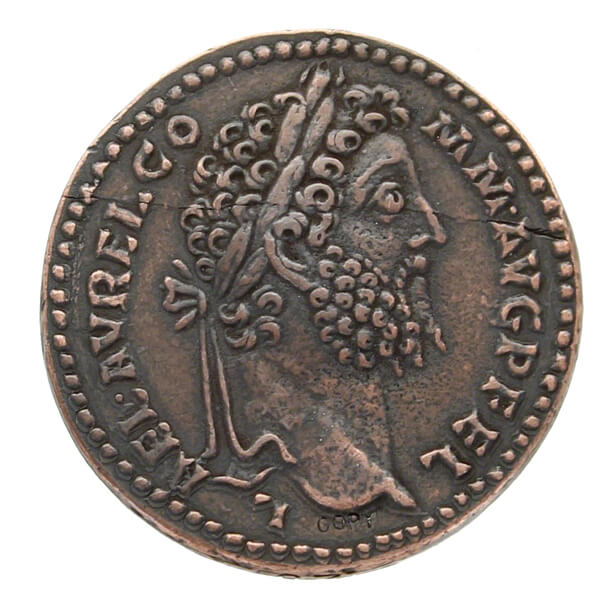
coinreplicas.com -
Although Commodus was the last living son, he had four married sisters. Their spouses were always ready to become involved and hold the reins of power in the Roman Empire. The older sister, Lucilla, was the widow of the previous Roman emperor Lucius Verus. In 169 AD, Lucius perished as a result of the Antonine Plague. Even though Commodus's wife Empress Bruttia Crispina was still alive, Lucilla had held the title of Augusta (empress). There was less warfare on the empire's borders, but there was no peace within the empire. Commodus's rule was dogged by political conflict from the start, and the emperor had to foil several attempted conspiracies. She was envious of Commodus' wife, as evidenced by this. To harm her brother Commodus and his wife Bruttia, Lucilla planned a scheme.
His elder sister Lucilla desired to seize control of the Roman Empire and impose her emperorship. She solicited assistance from Quintianus and Quadratus, two men she presumably loved. She attempted to organize a coup against the emperor in 182, enlisting the help of certain powerful senators. While the emperor was at the theater, some powerful senators plotted to kill him. The task was unsuccessfully completed by the lovers, and the plot was revealed. They were detained and put to death. Lucilla, the mastermind of the plan, was banished to the island of Capri and later murdered.
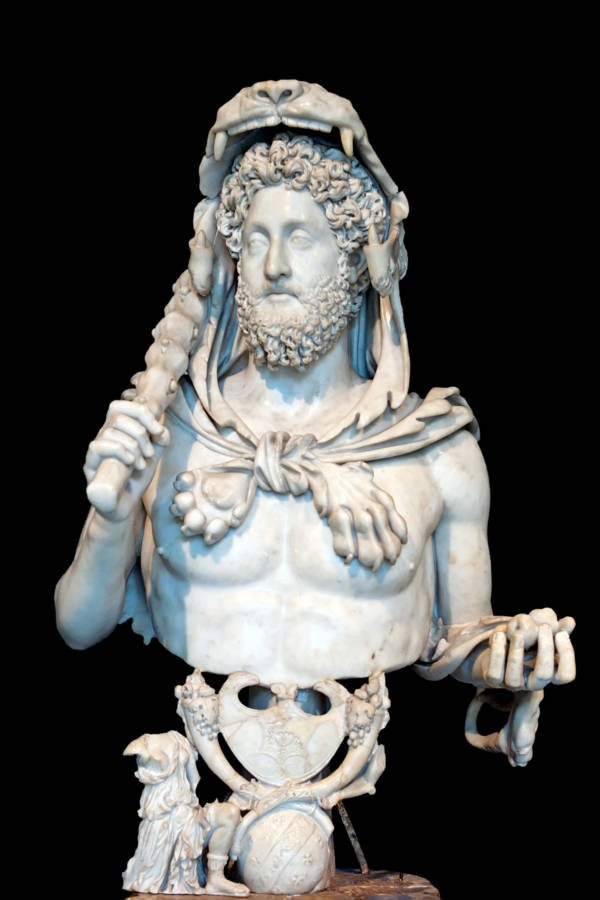
en.wikipedia.org 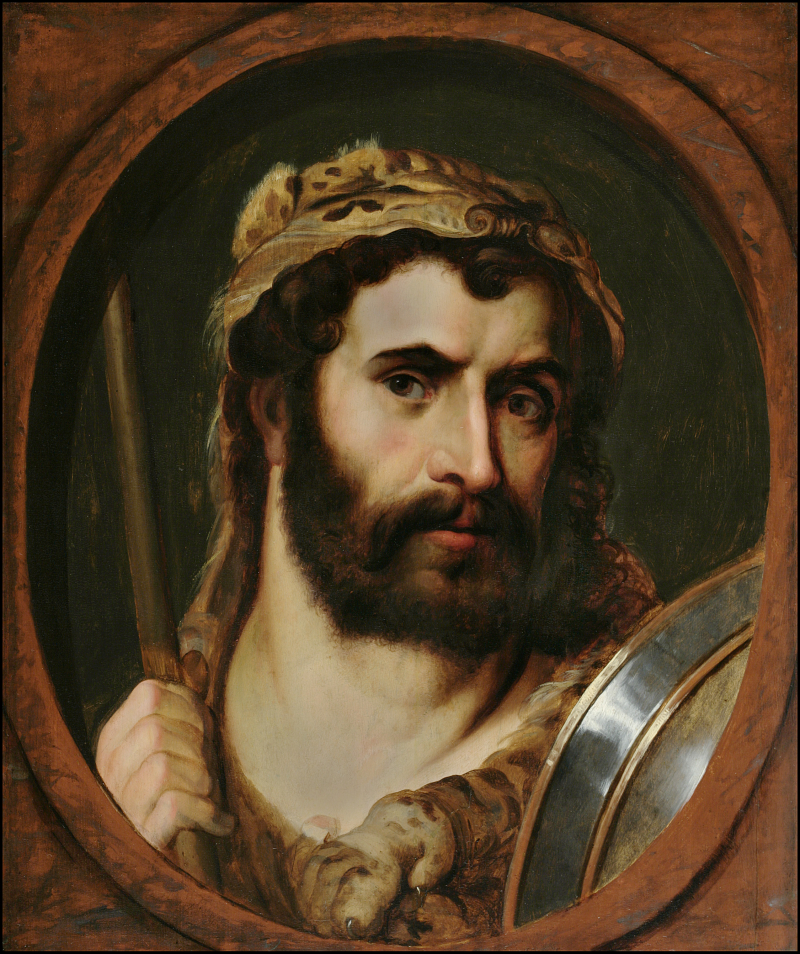
en.wikipedia.org -
One of the most corrupt and careless Roman rulers was Commodus. He never finished any of his obligations as emperor. Perennis and Cleander were put in charge by Commodus to handle state affairs and complete the majority of the Emperor's duties. At the arena, he was either competing with gladiators or watching them compete. He also frequented the brothel, where his men had constructed a harem for him to house 300 concubines.
Marcia was Commodus' preferred mistress out of the 300. He never remained devoted to his wife since, at the time, Roman polygyny was common practice. The most attractive ladies would be gathered by his warriors. He also gave orders for his soldiers to pull ladies by force into his castle. He took advantage of women to satisfy his sexual need, but he continued. A small child was taken by Commodus to his home and relatives. He gave the young lad the command to share a bare bed with him. Additionally, he had the kid formally embrace the moniker "The Boy Who Loves Commodus." There were also rumors that Commodus had his sister join his harem and had given the name of his mother to one of his concubines.
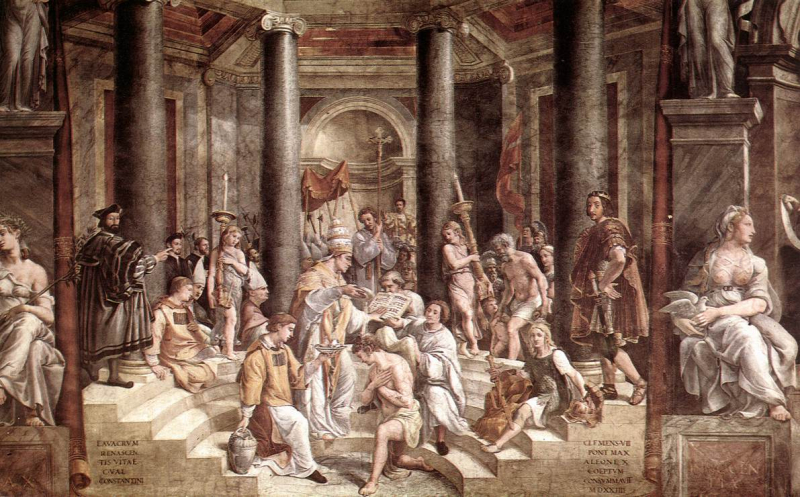
www.history.com 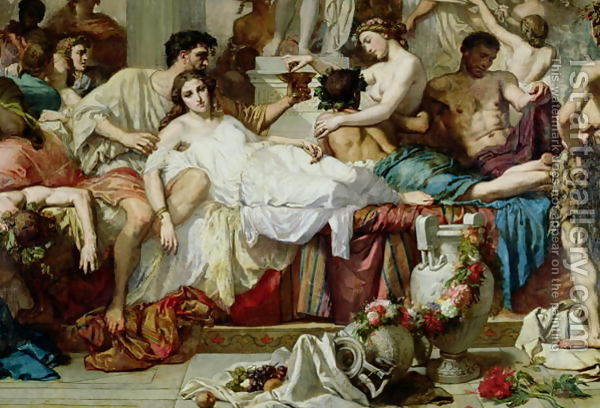
www.history.com -
Being a son born during his father's rule, Commodus enjoyed privileges of authority from an early age. Commodus was a tiny psychopath who was driven by tremendous power in the unruly period. Commodus, a preteen, tossed everyone who made fun of him to feed wild animals. His vicious behavior increased with time as did his inhumane deeds. He became the cruelest Roman Emperor.
According to one horrifying legend, Commodus was a 12-year-old kid who, after taking a cold bath, became so furious that he ordered the bathkeeper to be tossed into the furnaces, which was the most heinous deed. Only because of the fast thinking of a fellow slave who threw a sheepskin onto the furnace in place of the unfortunate housekeeper was her life saved. The smell of smoke persuaded the future emperor that the crime of a bath that wasn't hot enough had been rightfully avenged.
He also carried out numerous experiments. Commodus practiced on live patients when he was younger because he aspired to be a surgeon. He once used scalpels to cut into an obese man's tummy to examine what was within. His professors just had to observe, even provide a hand. Any instructor who was uncooperative was designated as the subject of an experiment.
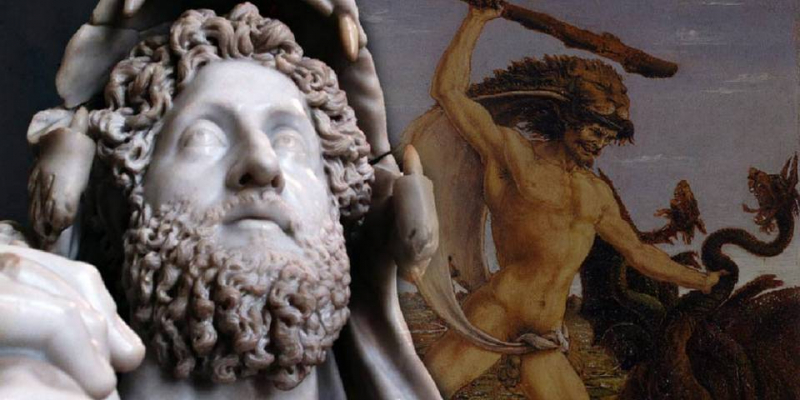
history.howstuffworks.com Weird History - youtube.com -
The ego of Commodus was unmatched. He genuinely thought of himself as a living deity. He even put pressure on the Senate to formally recognize him as a living god by having the head of the Colossus severed and replaced with his visage. But he wasn't just any deity; according to Commodus, he was the Greek hero Hercules. When his lunacy reached its peak, he began to wander around wearing a lion's skin cloak to make himself appear more like Hercules and insisted that everyone speak to him as "Hercules, son of Zeus."
Unsurpassable in his attempts to reestablish the whole Roman Empire was Commodus' ego. He began renaming items all across the Empire. It was merely a tactic to force people to give praise even when they didn't want to. First, Commodus refounded Rome and gave the city and its inhabitants the names Commodiana and "Commodianus." Then he gave the name "Colonia Lucia Annia" to Rome. Legions changed over this process to become Commodianae. "Alexandria Commoduiana Togata" was the new name of the fleet that transported the grains from Africa. Commodus gave his name to every month of the year by renaming them. For example, September was renamed "Heracles," while August was renamed "Commodus."
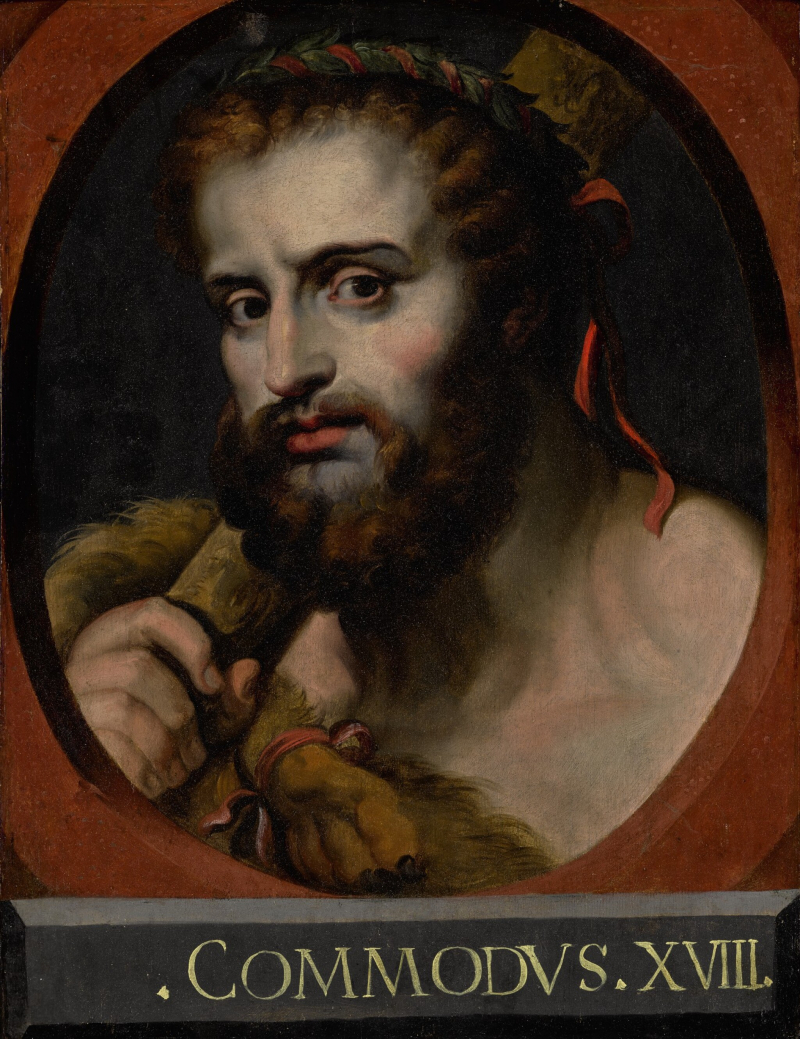
en.wikipedia.org General Knowledge - youtube.com -
Commodus uncontrollably lost his mind as he proclaimed himself the new Romulus. He even intended to assassinate every senator while ruling the Empire from the gladiator barracks. Marcia attempted to halt Commodus once she became aware of it. Although Commodus viewed Marcia as his wife and heeded his counsel, he disregarded her advice this time. He attempted to assassinate her instead when she rejected his plan to govern the Roman Empire with unlimited power. Marcia managed to survive in some way thanks to one of Commodus' sex slaves. The plot to overthrow Commodus had already begun. Marcia also joined the faction calling for Commodus' demise.
On December 31, 192, the revolting gang tainted Commodus' food, but he threw the poison back up. A wrestler by the name of Narcissus went to kill Commodus after the initial attempt. Narcissus strangled Commodus when he was cleaning up the vomit in the bathtub. The harsh emperor's demise came about in this manner. One of the characteristics was that bad Roman emperors passed away earlier than usual. Both Commodus and Caracalla passed away at the age of 31, which they both did. Additionally, their manner of death was identical; they were both slain using methods they liked. One of Caracalla's troops killed the emperor. Likewise, one of the gladiators killed Commodus.
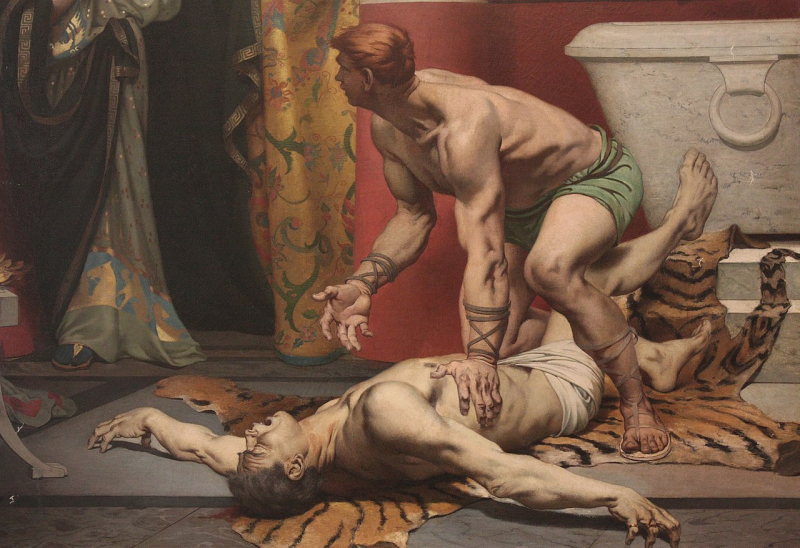
www.egypttoday.com 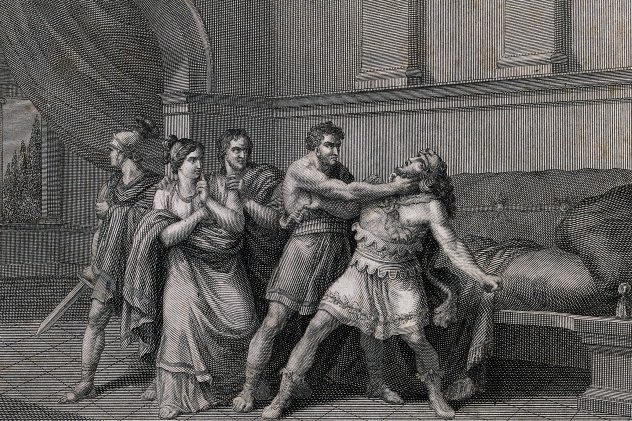
brewminate.com
















